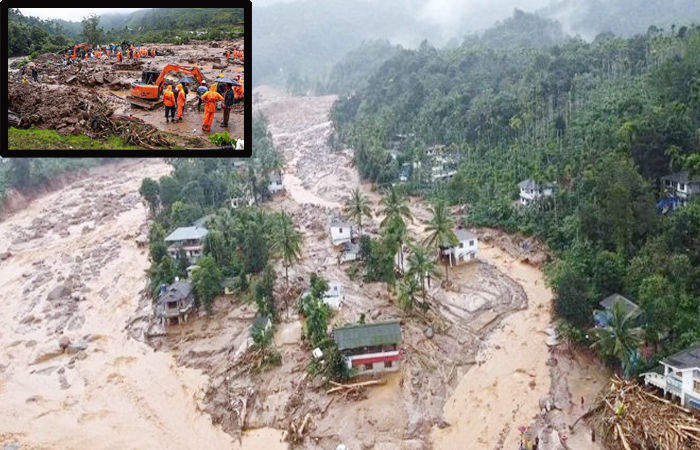
Wayanad Landslide: Hundreds of houses were buried in Noolpuja, Mundakkai, Attammal and Churalmala villages on Tuesday morning after torrential rains in Wayanad, Kerala, the paradise of South India. 143 people died in this natural disaster, while more than 150 people were injured. Also, hundreds of people are buried under the debris of the mountain. Many agencies including NDRF and Army have been deployed for rescue work here. Relief and rescue work is still going on. It is natural to have a question in the mind that why the mountains suddenly collapsed in the darkness of the night and there was devastation all around. Experts believe that due to the rising temperature in the Arabian Sea, dense clouds are forming, due to which heavy rains are falling in Kerala in a short time. This is the reason why the risk of landslides is increasing in the hilly areas.
Scientists and experts have stressed on the need for landslide forecasting systems and construction of safe housing units for the vulnerable population. S. Abhilash, director of the Advanced Centre for Atmospheric Radar Research at the Kochi Institute of Science and Technology, said that heavy rainfall is occurring in Kasargod, Kannur, Wayanad, Calicut and Malappuram districts due to the active monsoon offshore low pressure area, which has been affecting the entire Konkan region for the last two weeks.
The ground has eroded after two weeks of rain. Abhilash said that a deep 'mesoscale' cloud system formed over the Arabian Sea coast on Monday and heavy rains occurred in Wayanad, Calicut, Malappuram and Kannur, resulting in landslides. Abhilash said that like the clouds seen during the Kerala floods in 2019, this time too the clouds were very dense. He said that scientists have received information about the formation of very dense clouds over the southeastern Arabian Sea. He said that sometimes these systems enter the land area, as happened in 2019. Our research showed that the temperature in the southeastern Arabian Sea is increasing, making the atmosphere above this region, including Kerala, thermodynamically unstable.
Scientists said this atmospheric instability, which helps in the formation of dense clouds, is linked to climate change. Earlier such rains were common in the northern Konkan region, northern Mangaluru. Research by Abhilash and other scientists, published in the journal 'npj Climate and Atmospheric Science' in 2022, says that rainfall is becoming more sustainable on the west coast of India. This happens when warm, moist air rises in the atmosphere. Increasing altitude reduces pressure, which reduces the temperature.
It is very difficult to assess landslides…
According to the India Meteorological Department, some automated weather stations in Thrissur, Palakkad, Kozhikode, Wayanad, Kannur, Malappuram and Ernakulam districts recorded rainfall between 19 cm and 35 cm. Abhilash said most of the IMD's automated weather stations in the region recorded more than 24 cm of rain in 24 hours. Many rain gauge stations installed by farmers recorded more than 30 cm of rain.
The Meteorological Department said that heavy rains are expected at some places in the state in the next two days. Madhavan Rajeev, former secretary of the Union Ministry of Earth Sciences, said that weather agencies can predict very heavy rains, but nothing can be said with certainty about landslides.
 look news india
look news india
